Welcome
Ecton is a historic mining area, once one of the foremost mines in the British Isles, now a Scheduled Monument and a valuable educational resource.

The Ecton Mine Educational Trust was formed with the principal aim of promoting education in applied geology, mining and mineral extraction. Thanks to the generosity of the late Mrs Elizabeth Cox, the Trust is the owner of the mine, mineral rights, and the study centre at the l8th century Ecton Mine in the Peak District National Park.
The Trust, with its sister organisation the Ecton Hill Field Studies Association, provides the facilities for school and university teachers to run field courses that introduce young people to subjects relevant to the minerals industry, as well as offering research facilities and participating directly in research projects.
Why is Ecton so important and historic?
From Bronze Age times, the copper and lead deposits on Ecton Hill were worked for over 3500 years, ceasing in 1891. During this time fortunes were made and lost. In the 18th century the Duke of Devonshire made a profit of over £300 000, said to have financed the building of the magnificent crescent in Buxton. Total ore production is estimated at over 100 000 tonnes, mainly of copper ore.
The whole area is a site of special scientific Interest (SSSI), and the Ecton mine itself is an underground SSSI. The rock exposures at nearby Ape’s Tor provide outstanding opportunities for the study of geological structures, which can then be seen again underground in Salt’s Level
Privacy Statement: This website does not use cookies, does not store any personal data, and does not track your usage in any way.
Remembering GEOFF COX
Commemorating the life of Geoff Cox, engineer, educator, and visionary, who died 20 years ago, on 2nd November 2003. It was Geoff’s concept to turn an abandoned mine in the Peak District into an educational resource for new generations of mining professionals. Read about his life HERE. (re-published from PDMHS Newsletter 188, October 2023)
Latest
- DDCT grant
- Heritage Open Day
- Balance Cone news
- Muon experiments
Funding
The Ecton Mine Educational Trust is a registered charity. Apart from its educational activities it is responsible for safety and maintenance of the mine and its buildings. Funding sources include
- Donations for EHFSA courses and other visits to the mine
- Participation in funded scientific research
- Donations from organisations such as MinSouth
- Corporate sponsorship – both cash and in kind
- Grants for restoration and improvement
If you could consider becoming a sponsor or assisting financially in any way, please contact one of the trustees



 The powder house, where dangerous explosives were stored. This small shed was placed well away from other buildings and was erected in 1884. The interior was originally lined with wooden panels as an added precaution against accidentally creating sparks.
The powder house, where dangerous explosives were stored. This small shed was placed well away from other buildings and was erected in 1884. The interior was originally lined with wooden panels as an added precaution against accidentally creating sparks.

 was lowered on one side and it was converted to a field barn. The steam engine was located in the far half of the building, while its boiler was in the near half. A short distance upslope there was a small reservoir pond for the boilers fed by water brought up from the mine.
was lowered on one side and it was converted to a field barn. The steam engine was located in the far half of the building, while its boiler was in the near half. A short distance upslope there was a small reservoir pond for the boilers fed by water brought up from the mine.


 In the 1760s-80s the internationally important Deep Ecton Copper Mine made a fortune for the Dukes of Devonshire. The first copper was mined here long before, in the Bronze Age over 3,500 years ago. The Dukes, who owned northern and western parts of the hill, had their mines worked in-house for over 50 years from 1760. From the 1820s private mining companies embarked on a fruitless search for further rich ore deposits. The mines were finally abandoned in 1889. While the 19th century ventures lost investors’ money, with them at best only finding other peoples’ leavings, they kept local miners in work for decades.
In the 1760s-80s the internationally important Deep Ecton Copper Mine made a fortune for the Dukes of Devonshire. The first copper was mined here long before, in the Bronze Age over 3,500 years ago. The Dukes, who owned northern and western parts of the hill, had their mines worked in-house for over 50 years from 1760. From the 1820s private mining companies embarked on a fruitless search for further rich ore deposits. The mines were finally abandoned in 1889. While the 19th century ventures lost investors’ money, with them at best only finding other peoples’ leavings, they kept local miners in work for decades.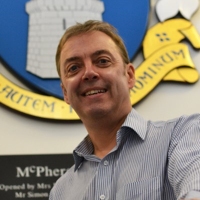
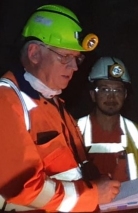
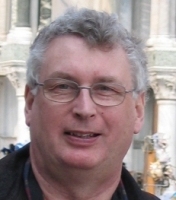
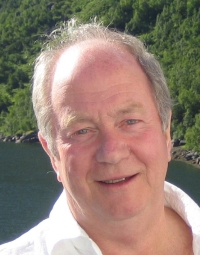 Peter has nearly 50 years experience mostly at the sharp end of the minerals industry. He is a metallurgist who started in the steel industry prior to his degree at Cambridge University. He held senior positions with Anglo American on the Zambian Copperbelt, and at Glebe Mines fluorspar operation in the Derbyshire Peak District; and has been an independent freelance since 2000. He has had connections with Ecton Mine and Geoff Cox since the mid-1980s. He is Secretary of The British Aggregates Association, a member of the CBI Minerals Group and the UK National Minerals Forum; and has various business interests in the industrial minerals industry in the UK, Europe and globally; and is also a Director of MAUK (Mining Association of the UK) and Amemptos Music.
Peter has nearly 50 years experience mostly at the sharp end of the minerals industry. He is a metallurgist who started in the steel industry prior to his degree at Cambridge University. He held senior positions with Anglo American on the Zambian Copperbelt, and at Glebe Mines fluorspar operation in the Derbyshire Peak District; and has been an independent freelance since 2000. He has had connections with Ecton Mine and Geoff Cox since the mid-1980s. He is Secretary of The British Aggregates Association, a member of the CBI Minerals Group and the UK National Minerals Forum; and has various business interests in the industrial minerals industry in the UK, Europe and globally; and is also a Director of MAUK (Mining Association of the UK) and Amemptos Music.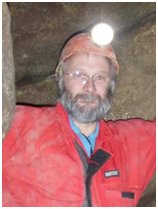 I am an exploration and mining geologist (C. Geol) with over 25 years of experience in the deep geological disposal of radioactive waste and 7 years of experience of exploration, environmental impact assessment and mining feasibility for the Kayelekera uranium deposit in Northern Malawi, Africa. I retired from the British Geological Survey in 2016 and am currently a member of the Government’s Committee on Radioactive Waste Disposal. I undertook a PhD on caves and mines in the Peak District and, as an active caver and mine explorer, have been studying the underground world of the Peak District since the mid 1970’s, including the mines of the Ecton Area. I am a director (editor) of the Peak District Mines Historical Society and the mine manager of their Temple Mine in Matlock Bath.
I am an exploration and mining geologist (C. Geol) with over 25 years of experience in the deep geological disposal of radioactive waste and 7 years of experience of exploration, environmental impact assessment and mining feasibility for the Kayelekera uranium deposit in Northern Malawi, Africa. I retired from the British Geological Survey in 2016 and am currently a member of the Government’s Committee on Radioactive Waste Disposal. I undertook a PhD on caves and mines in the Peak District and, as an active caver and mine explorer, have been studying the underground world of the Peak District since the mid 1970’s, including the mines of the Ecton Area. I am a director (editor) of the Peak District Mines Historical Society and the mine manager of their Temple Mine in Matlock Bath.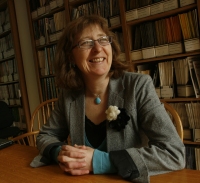 mongst geologists and others involved in the application of geoscience, particularly through the promotion of professional titles such as CEng, CGeol, and EurGeol. She has served on the Council of the Geological Society of London and is a past President of the European Federation of Geologists. For many years, she has been a member of the Pan European Reserves and Resources Reporting Committee (PERC).
mongst geologists and others involved in the application of geoscience, particularly through the promotion of professional titles such as CEng, CGeol, and EurGeol. She has served on the Council of the Geological Society of London and is a past President of the European Federation of Geologists. For many years, she has been a member of the Pan European Reserves and Resources Reporting Committee (PERC).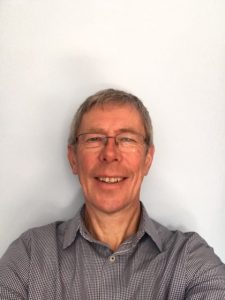 Phil in Organic Chemistry, Nottingham Uni 1977-79, awarded 1981
Phil in Organic Chemistry, Nottingham Uni 1977-79, awarded 1981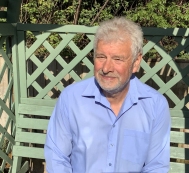 I am a geoscientist with more than 45 years of experience. After working as a mine geologist in the Yorkshire Coalfield for 12 years, I moved on to seismic exploration for coal, potash and other minerals focussing on seismic interpretation and delineating geological structure to aid mine planning. My prospect experience includes projects in UK, Spain, Turkey, Australia, Africa, Argentina and Canada.
I am a geoscientist with more than 45 years of experience. After working as a mine geologist in the Yorkshire Coalfield for 12 years, I moved on to seismic exploration for coal, potash and other minerals focussing on seismic interpretation and delineating geological structure to aid mine planning. My prospect experience includes projects in UK, Spain, Turkey, Australia, Africa, Argentina and Canada.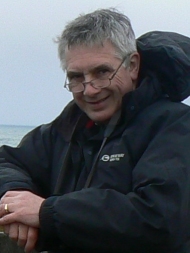 ng and engineering around the world. Although I am now retired I continue to hold Board appointments with national and international regulatory and standards organisations which I find professionally stimulating and thoroughly rewarding.
ng and engineering around the world. Although I am now retired I continue to hold Board appointments with national and international regulatory and standards organisations which I find professionally stimulating and thoroughly rewarding.